Two WWF conservation monitors take us behind the scenes of an African penguin colony at CapeNature’s Stony Point near Betty’s Bay to share insights on the role that ecotourism can play in raising awareness about the species’ battle for survival.
Why the African penguin needs saving
When you’re holding a tiny African penguin chick with your one hand and placing a small feeding tube in its mouth with the other hand, you get a real sense of what’s at stake for this endangered species. I have never had this experience myself and was riveted when Vathiswa Bafo and Marcelin Barry described it to me.
They were formerly trained as marine coastal and community monitors by WWF South Africa and on 1 August this year, took up their posts as conservation monitors at CapeNature’s Stony Point Nature Reserve near the small seaside town of Betty’s Bay, an hour from Cape Town. They explained some of the factors that make ecotourism both possible and valuable for this endangered species, and this gave me a great sense of hope.
Vathiswa and Marcelin come with a great sense of passion for their work, and if more people felt this way and acted on it, there could be fewer endangered species on our planet.
Changes in the Indian Ocean, coupled with overfishing, have resulted in an exponential loss of fish, especially small pelagic – or open-sea – species like sardines and anchovies. For African penguins, this means a heavily reduced food supply. Add plastic pollution in our oceans, degraded habitats, noise from ships, disease, storms and flooding, and you understand why they’re facing extinction.
“I have found something I love doing and will hold onto it forever,” says Vathiswa who moved to the Western Cape from the Eastern Cape where she had never been involved in the conservation sector but now can’t imagine doing anything else.
Marcelin explained how their work focuses on monitoring the breeding of the penguins at Stony Point, while also monitoring other bird species like cormorants which are endangered too.
Marcelin says, “We are looking at bringing back ecotourism around the Stony Point area because this is very important as things like regular edutalks could really raise awareness.”
He and Vathiswa see ecotourism as a boost for this species which could become functionally extinct by 2035 – which means there won’t be enough breeding pairs to sustain the species – with breeding pairs plummeting over the past century from more than 1 000 000 to around 10 000.
Here they share their insights with me.
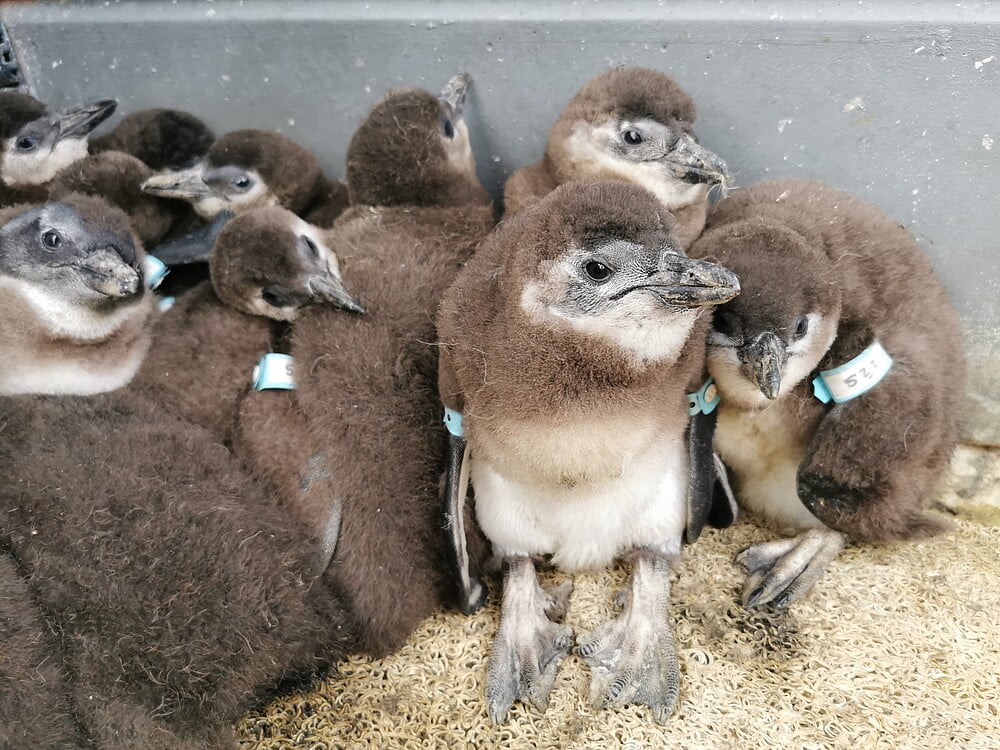
The nuts and bolts
For ecotourism to function, there are some basic items that need to be in place. In the case of Stony Point, a well-maintained boardwalk is fundamental. Vathiswa says that a broken boardwalk, as is currently the case, results in the closure of access to the colony. This wooden platform is what enables people to view the African penguins without disturbing their habitat.
Marcelin also speaks about the potential role of technology in boosting ecotourism. One idea is to have a live camera installed so that people can experience the wonder of the colony by watching remotely.
“It is important to come up with solutions,” he says, “If you have a live camera, tourists can watch remotely, especially during moulting season when the penguins are sensitive and don’t want people to come anywhere near them. That way, live camera footage can also bring awareness to a greater number of people.”
Discussions are underway to have live videos and edutalk videos at On the Edge, which is the restaurant at Stony Point. An awareness-raising video will also be produced to reach others who do not visit Stony Point.
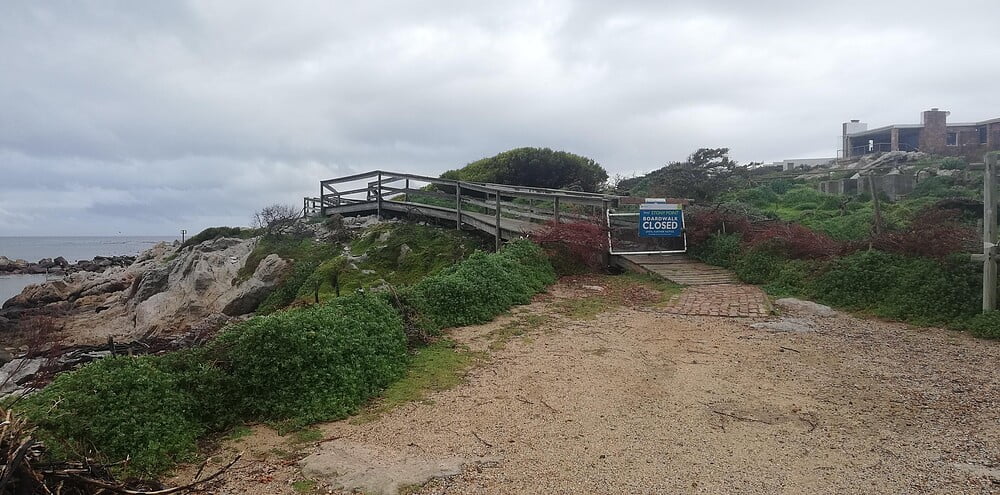
The chicks
At their recent seabird handling training with the Southern African Foundation for the Conservation of Coastal Birds (SANCCOB), Vathiswa and Marcelin fell in love with the tiny creatures in their care.
“When we got trained on how to take care of the orphan chicks, it was so special because you realise that the only thing that can help this declining species is the survival of the chicks,” says Vathiswa. Knowing that you’re playing a part in their survival is a “major highlight” she says, adding that it’s very satisfying knowing you’re helping get them to a point where they are “ready to be taken to the ocean where they will also breed one day”.
Marcelin explains that there are different techniques for handling adults compared to the chicks, and he enjoyed learning about this through SANCCOB, while also acknowledging that his work at Stony Point, with the penguins being in the wild, will be different.
“The tubing was something very special because there is a particular way to do it,” Marcelin says, “There is a hole in the middle of the roof of the mouth so you have to go extremely left or right and be very careful to make sure the tube is kept away from the hole.”
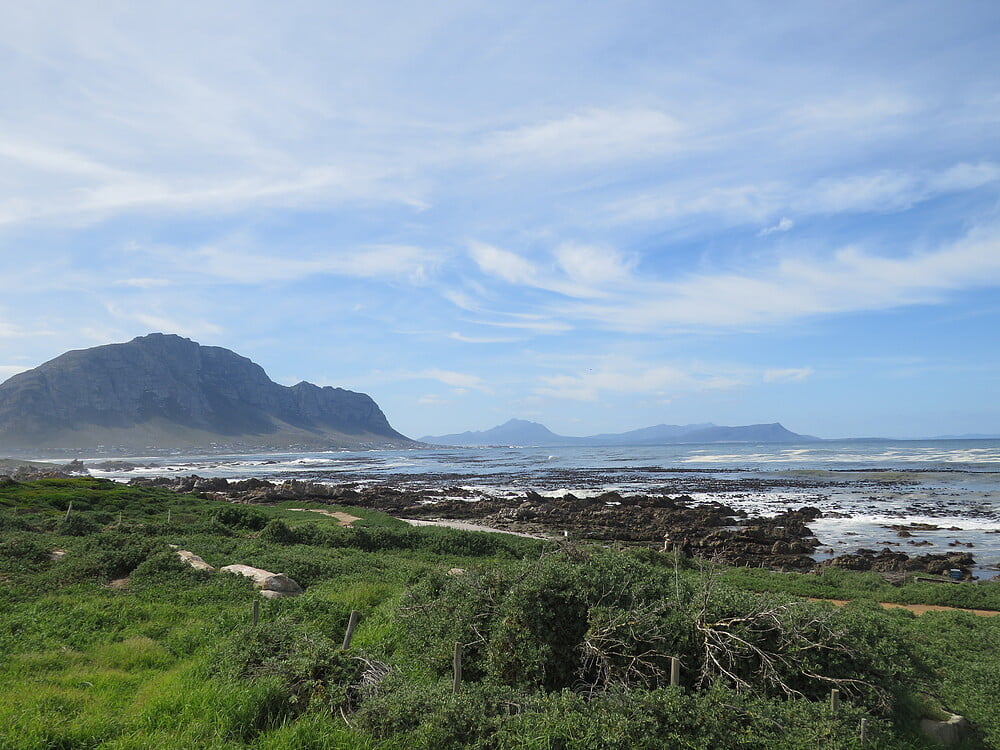
Awareness is key
Knowledge and awareness begin with those working in ecotourism because they will be the ones spreading information to tourists as well as community members around the tourism site.
Marcelin says that “edutalks” are very valuable because they can change a tourist from someone who might just want to see an African penguin to someone who really understands how the whole population – and ecosystem – is threatened by human activity.
When ecotourism is done sensitively with no interference to the habitat, it allows people to experience the creatures in the wild and grasp what is at stake.
“African penguin breeding pairs have declined so if ecotourism comes back to Stony Point, it will bring awareness not only to the international tourists who come here, but also local people like fishermen and youths living around our area,” says Marcelin, adding that stabilising and growing the population is vital.
Vathiswa says a major part of raising awareness is getting others to understand the threats to the species.
“We need to teach people the threats that are facing the penguins. Dirty oceans, fishing lines discarded along the coast, depleted food stock for penguins due to overfishing, and more,” she says.
If we educate people about how to protect the environment, we help protect natural healthy habitats for the penguins to breed more freely, explains Vathiswa.
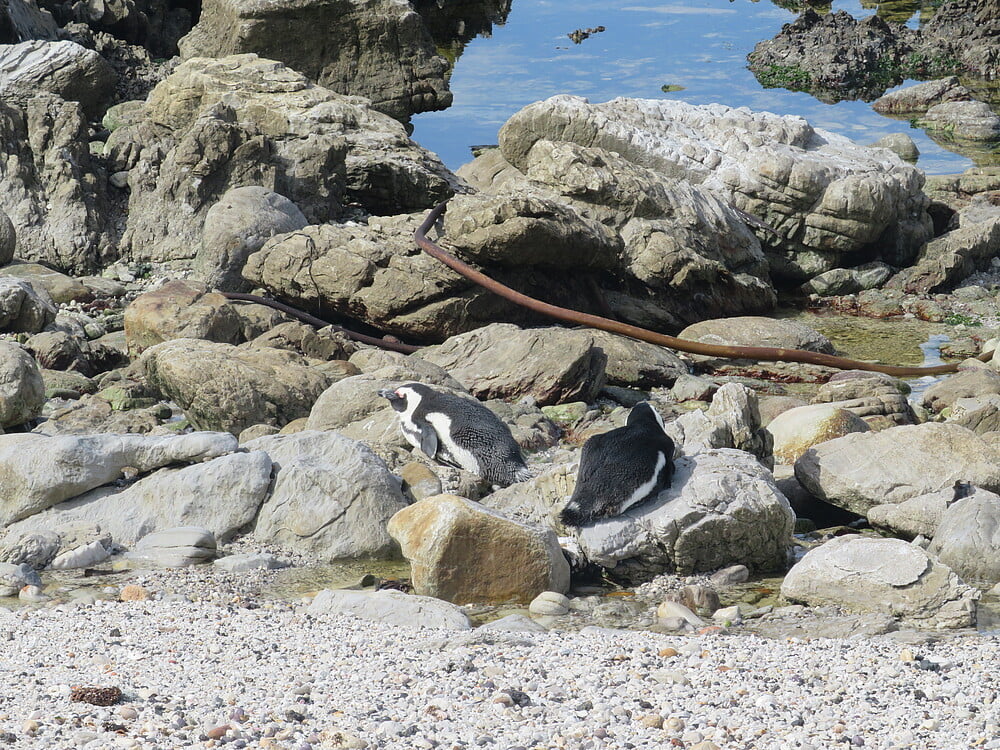
Partnerships strengthen ecotourism
Vathiswa says great partnerships are vital for the survival of the species. She says, “The recently initiated Saving the African penguin project has brought many organisations together like WWF South Africa, SANCCOB, CapeNature, BirdLife South Africa, and the Two Oceans Aquarium.”
She adds, “Working with these organisations I see a lot of change coming.”
Marcelin says that if he imagines the fate of the African penguin five years from now, he likes to think that ecotourism will be playing a major role in the survival of the species through excellent management, teamwork and transparency.
“I would love to see a whole-of-society change not just at Stony Point but the whole community of people in this area. Tourists will be more passionate about the African penguin and be more inspired to save it, and the local community will also see that it’s up to all of us,” he says.
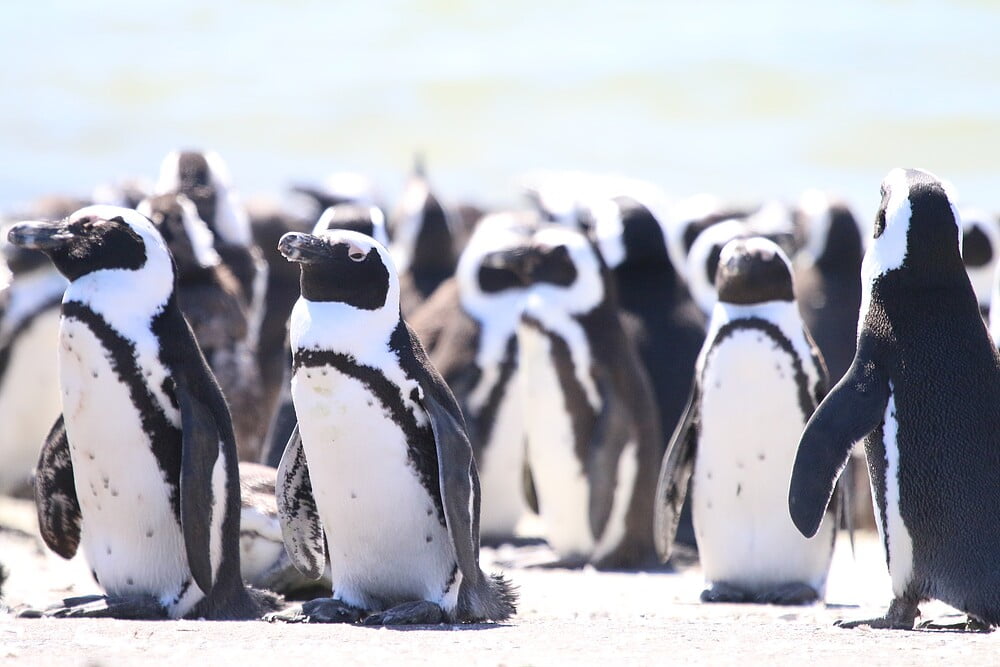
What else is being done?
After speaking to Marcelin and Vathiswa, I was filled with a sense of hope that awareness can augment the other excellent work being done to save this species. This includes converting areas with known breeding sites into nature reserves, prohibiting the collection of guano and eggs, and establishing marine protected areas where fishing is prohibited. What’s also being done as part of a multi-pronged approach is sick bird rehabilitation, monitoring of African penguin populations, keeping an eye on disease outbreaks, and active management of population sizes of predators. There are also the artificial nest boxes, and identifying areas of food surplus in which new penguin colonies can be established. It is inspiring to see so much being done, and I only hope we can change the fate of these beautiful and quirky creatures.